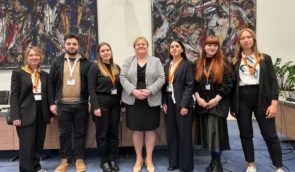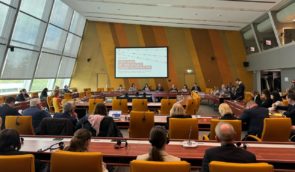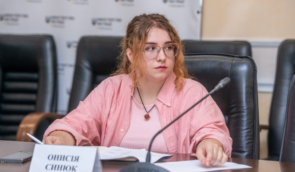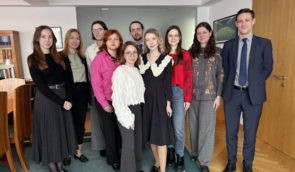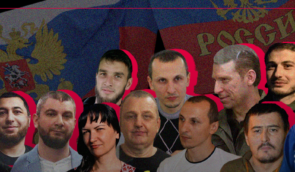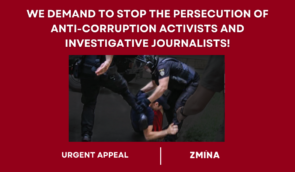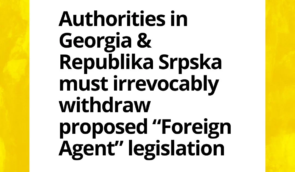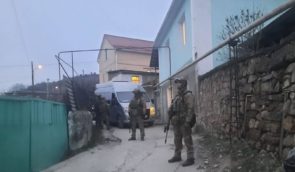Pensions for IDPs, ratification of the Rome Statute and nine more steps the state has to take this year: recommendations of human rights defenders
Human rights defenders named 11 priority areas that the state should pay attention to this year in order to punish war criminals and support war victims. Among them are: the ratification of the Rome Statute, the definition of categories of war-affected people for their full support, the payment of pensions to displaced persons and the definition of the state strategy for the reintegration of de-occupied territories.
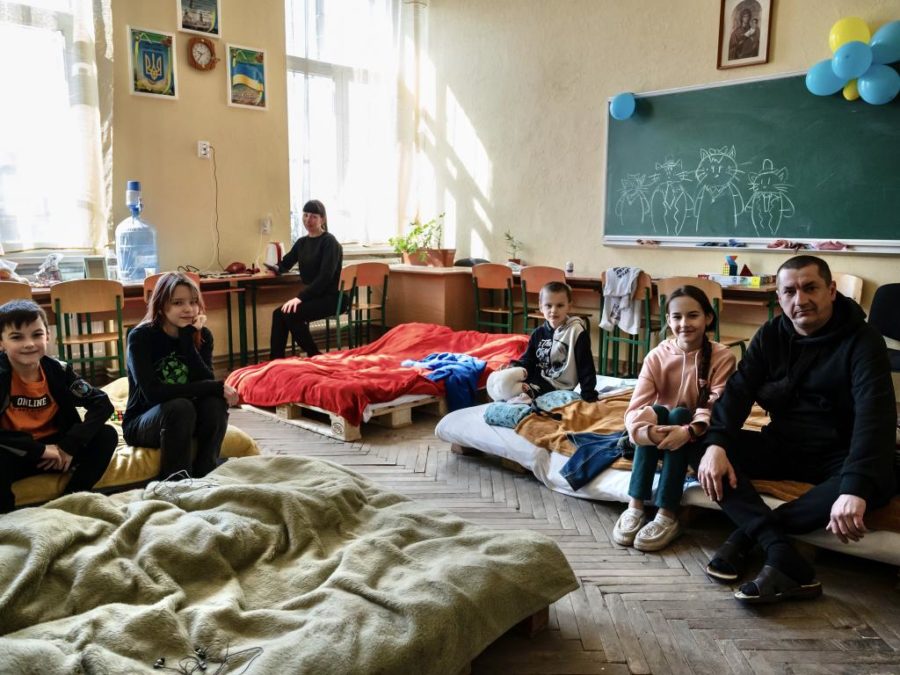 Illustrative image / UNIAN
Illustrative image / UNIANThe coalition of public organisations, which since 2014 have been engaged in the protection of the rights of victims of the war, presented its vision of the priority steps of the state for 2024 in the context of of great war.
Alona Lunova, the advocacy manager of Human Rights Centre ZMINA said that the coalition has been preparing the following list of priority steps for the parliament and the government since 2019:
“In this document, which is our advocacy agenda for the year, we cover strategic issues that, in the opinion of our coalition, should be the focus of the state’s attention. This year, there are 11 steps, six of which are proposals or recommendations to the Parliament and five to the Cabinet of Ministers of Ukraine. And we can see the dynamics: some issues that were relevant in 2019 (such as granting IDPs the right to participate in local elections) have been resolved. Some of them in particular, the ratification of the Rome Statute of the ICC or the introduction of an administrative procedure for the recognition of acts of civil status that took place during the occupation – change from year to year and remain relevant in 2024”.
Thus, human rights defenders advise the state to ratify the Rome Statute of the International Criminal Court (ICC) as soon as possible and harmonise national criminal legislation with international law. According to experts, this will help strengthen the capacity of the national justice system:
“After the ratification of the Rome Statute, Ukraine will have the right to nominate its own citizens to participate in the elections of the Prosecutor of the International Criminal Court, the head of the Chancellery, and judges; participate in the development of resolutions aimed at the development and strengthening of the work of the ICC, and vote during the Assembly of States Parties in the Rome Statute; work on amendments to the Rome Statute, in particular on the crime of aggression. Today, Ukraine remains the scene of mass war crimes, but until the Rome Statute is ratified, it does not acquire the rights of a full-fledged participant in the ICC – an effective mechanism for bringing to justice for the most serious international crimes”.
In addition, this year the state should define the categories of war-affected persons so that they receive full support and protection. According to human rights defenders, despite the protracted armed conflict since 2014 and hundreds of thousands of injured Ukrainians, the legislation still does not define who can be considered victims of the armed conflict. That is why the state does not have a comprehensive system of accounting and support for these people.
Another important step is the introduction of an administrative (extrajudicial) procedure for the recognition of acts of birth, death, conclusion and dissolution of marriage that took place in the occupation. This is important, say human rights defenders, because life in the occupation continues and people need to document what is happening to them. The Verkhovna Rada has registered draft law No. 9069, which introduces such recognition of acts of civil status that took place during the occupation. However, it has not yet been considered by the specialised parliamentary committee, and its adoption will allow Ukrainians in the occupation to obtain state documents and exercise their rights.
Also, the state should move from one-off to complex, long-term solutions to ensure the rights of displaced persons, say human rights defenders. They note that since February 24, 2022, at least nine draft laws amending the existing law on the rights of displaced persons have appeared in the parliament. But some of them do not agree with the already implemented state policy in this area, have no financial justification and may provoke an artificial increase in the number of IDPs. Other draft laws constitute point changes, but do not contain comprehensive solutions to problems.
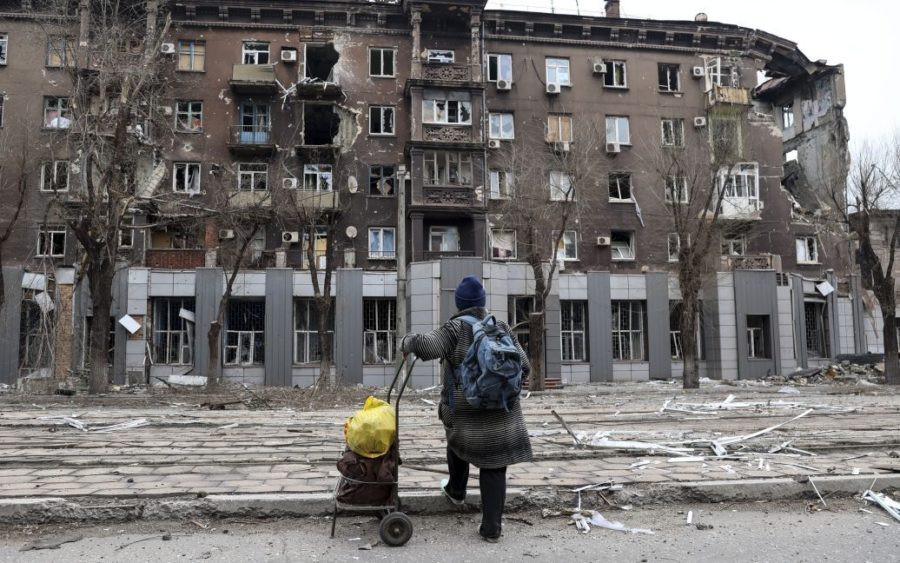 Life in Mariupol / AP Photo
Life in Mariupol / AP PhotoPayment of pensions to IDPs on a common basis and continuation of social support for the most vulnerable groups is another important direction pointed out by human rights defenders. Since 2014, the government began to differentiate the approach to paying pensions to IDPs and other citizens who lived in the controlled territory. Some restrictions and requirements for displaced persons appeared. But for those who fled the war after February 24, 2022, access to pensions was simplified. Therefore, human rights defenders believe that it is worth cancelling such restrictions for people who have become displaced since 2014, as well as pay them their pension debt.
“At the same time, it is important to provide accommodation assistance to IDPs fairly. Termination of assistance should occur only after the introduction of programs to improve the economic independence of displaced persons and provide them with housing”, say human rights defenders.
Among other important steps that the state has to implement:
- to expand the opportunity to receive compensation for destroyed real estate property due to the war;
- to make changes to the Criminal Code of Ukraine, which will allow to adhere to the principle of legal certainty in the issue of prosecution for collaborative activity;
- to create conditions for recognition of the learning outcomes of those who lived in the occupation;
- to ensure implementation of the Law “Social and Legal Protection of Persons in Respect of Whom Deprivation of Personal Liberty as a Result of Armed Aggression against Ukraine and Members of Their Families”;
- to prepare places for accommodation of evacuated citizens with limited mobility;
- to determine the state strategy for the restoration of state power and the reintegration of the population of the de-occupied territories of Ukraine.
You can find the full document on 11 steps for the state here.
For information: The Coalition of organisations dealing with the protection of the rights of victims of armed aggression against Ukraine includes Human Rights Centre ZMINA, NGO “Donbas SOS”, NGO “CrimeaSOS”, Charitable Fund “Right to Protection”, Charitable Foundation “EAST-SOS”, NGO “Civil Holding GROUP OF INFLUENCE”, Charitable Foundation “Stabilization Support Services”, Crimean Human Rights Group.


